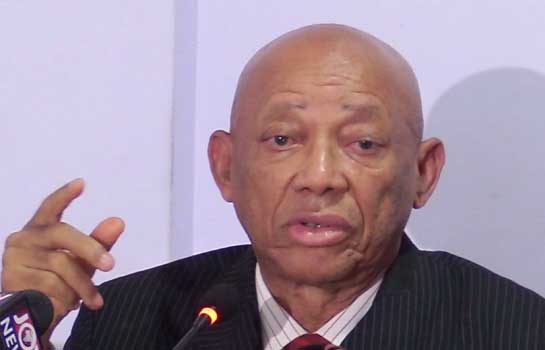Emile Short
Former Chairman of the Commission for Human Rights and Administrative Justice (CHRAJ), Dr. Justice Emile Short, has endorsed calls for the amendment of sections of the 1992 Constitution which grants excessive powers to the President.
Such excessive powers, he said, have the tendency to undermine accountability, quality government outcome, recipe for cronyism, constraints the development of checks and balances among others.
Speaking at the Rt. Hon. Mike Oquaye Centre for Constitutional Studies at the IEA’s weekly dialogue on Tuesday in Accra, he said though Ghana has adopted a liberal democratic system that has ushered the country into multi party election, transfer of power, constitutionally guaranteed freedom of speech and expression among other important democratic credentials that the country could be proud of, the excessive powers granted presidents under the 1992 Constitution makes them powerful and influential.
He stated, “the enormous powers granted presidents under the 1992 Constitution make them powerful and influential in all spheres of political, economic and social life of the country. The President retains the power, appoints the Chairperson and two Deputies of the CHRAJ, four members of the Electoral Commission (EC). Chairperson and two Deputies and other members of the NCCE, The District Assemblies Common Fund Administrator, Heads of Security Agencies including the Inspector General of Police, the Auditor General, Head of Audit Service, Governor of the Bank of Ghana, the chair and members of the NDPC, and Chairman of the Public Services Commission.”
According to the former CHRAJ boss, apart from the excessive control within the Executive and beyond, presidential appointments are “viewed as courtesy to which appointees must reciprocate the favourable disposition towards the appointing authority.”
He added that ‘winner takes all’ also creates acrimonious relationship between the ruling and opposition party, who due to severity of their deprivation quickly begin to scheme towards how to win the next elections.
Dr. Emile Short, therefore, proffered “that the country adopt aristocratic policy rather than the policy adopted presently of the ruling parties giving positions only to party loyalists and party sponsors.
Appointments of CEOs of public corporations and institutions and other adverse positions should be transparent, competitive, well advertised, and inclusive, bipartisan and based on competence. Nominations should emanate from the said enterprises commission, public services commission and appropriate recommendations made to the President for appointment.
He also mentioned that the Executive must be accountable to Parliament through a vote of censor, which has to be binding and not dependent on the President’s discretion, while the EC should have representatives from political parties, with representation in Parliament, Judiciary, Ghana Bar Association, National House of Chiefs, civil society, religious groups among others.
Nana Dr. SKB Asante, a former member of the Consultative Assembly that drafted the 1992 Constitution, though agreed with recommendations from the speaker, nonetheless said in order to deepen the democratic process a lot of the amendments needed to be dealt with in principles and not necessarily codified into a written statement like other developed countries such as China.
Member of Parliament for North Tongu, Samuel Okudzeto Ablakwa and Majority leader and MP for Suame Constituency, Osei Kyei-Mensah-Bonsu, both agreed on the excessive powers of presidents, though there were points of departure between the two.
The seminar was under the theme: “Reviewing Ghana’s 1992 Constitution; The Excessive Powers of the President.”
By Ebenezer K. Amponsah


